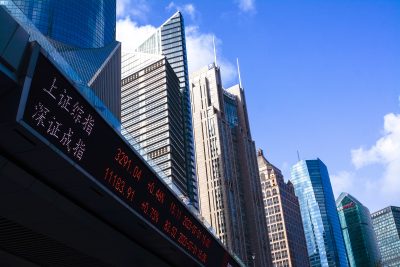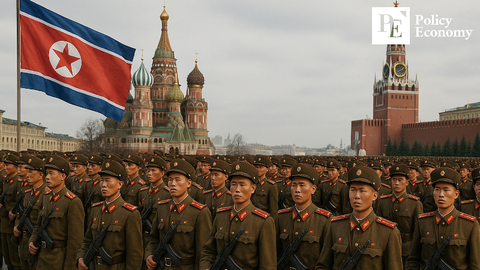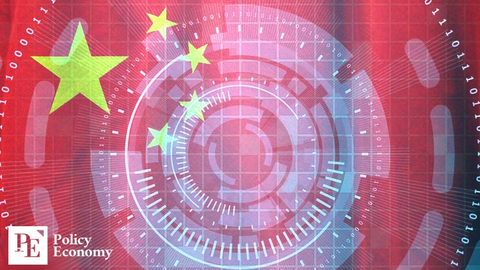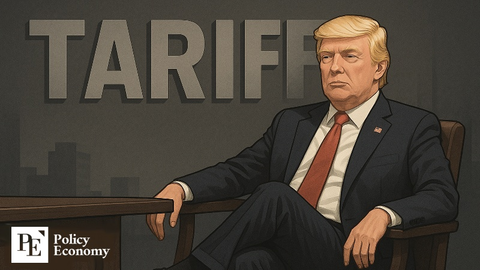[동아시아포럼] 중국, 기업 내 공산당 지부 설치해 민영기업 장악
입력
수정
[동아시아포럼]은 EAST ASIA FORUM에서 전하는 동아시아 정책 동향을 담았습니다. EAST ASIA FORUM은 오스트레일리아 국립대학교(Australia National University) 크로퍼드 공공정책대학(Crawford School of Public Policy) 산하의 공공정책과 관련된 정치, 경제, 비즈니스, 법률, 안보, 국제관계에 대한 연구·분석 플랫폼입니다.
중국은 당-국가 체제(Party-State System) 국가로 공산당이 국가의 모든 권력을 장악하고 있다. 이러한 시스템 하에서 중국의 국유기업들은 공산당에 의해 거의 모든 것이 통제되는 반면 민영기업에서는 그동안 공산당의 역할 명확하게 드러나지 않았다. 하지만 최근 공산당은 민영기업 내부에 당 지부를 설치하는 방식을 도입해 경제외적 개입과 관리를 강화하고 있다. 이는 추후 공산당이 민영기업을 제도적·재정적으로 통제하는 수단으로 작용할 가능성이 높다.

민영기업 중 당 지부 설치·운영한 곳 48%
기업 내부에 당 지부를 설치하는 방식은 새로운 것이 아니다. 1980년대 이후 민간 경제가 빠르게 성장하면서 공산당은 외국합작법인을 포함해 민영기업에서의 영향력을 확대하기 위해 노력해왔다. 이를 위해 지난 1992년 공산당 헌장을 개정해 3명 이상의 당원이 재직하는 기업의 경우, 당 조직을 설립하도록 했다. 이듬해 제정된 회사법에서는 중국 내 모든 기업들이 공산당 활동을 수행하기 위한 조직의 설치를 허용하도록 법적 근거를 마련했다.
2000년대 초반 장쩌민 전 국가주석은 개혁·개방 정책의 일환으로 '선진사회 생산력'의 발전을 위해 새로운 민영기업들을 적극 수용해야 한다고 강조하면서 민영기업에 대한 공산당의 개입이 본격화됐다. 이후 시진핑 국가주석도 민영기업에 대한 관리 강화를 우선 과제로 내세우는 등 공산당에게 민영기업은 새로운 도전이 됐다. 이와 관련해 2012년 공산당 중앙조직부는 민영기업을 보다 포괄적으로 당-국가 체제게 수용하기 위해 체계적인 지원책을 마련했다. 민영기업에 당 조직을 구축하기 위한 어드바이저를 파견하는 등 공산당이 민간 분야에서 보다 활동적이고 강력한 역할을 수행하기 위한 시도가 이어졌다.
중화전국공상업연합회(All-China Federation of Industry and Commerce, ACFIC)에 따르면 민영기업 중 당 지부를 운영하는 곳은 2002년 27%에서 2018년 48%로 증가했다. 이들 기업은 주로 북부 지역, 제조업 분야에 편중돼 있었으며 당 지부를 설치하지 않은 기업들은 3명의 당원을 확보하지 못해 기본 요건을 충족하지 않은 것으로 나타났다. 한편 공산당 자체 데이터에 따르면 2017년 기준으로 민영기업의 73%가 당 지부를 운영하고 있는 것으로 집계됐다. 제도 도입 이후 운영형태도 다양해져 자체적으로 당 지부를 운영하기 어려운 기업들의 경우, 하나의 당 지부 조직이 여러 기업을 동시에 관리하는 '공동 당 지부체제'도 운영되고 있다. 2018년부터 중국 내 상장기업에 대해 당 지부 설치를 의무화하면서 대기업의 경우 운영기업의 비중이 크게 늘었다. 실제 중국 상위 500개 민영기업 중 92%가 당 지부를 운영 중인 것으로 나타났다.
당 지부, 윤리경영 등 건전한 발전에 기여
국유기업에서는 당 지부가 당원을 모집하고 관리하는 역할을 하지만 민영기업에서는 공산당보다 경영진의 입김이 크기 때문에 당 지부의 역할도 다소 제한될 수 밖에 없다. 대부분의 민영기업에서 당 지부는 기업이 법과 윤리를 준수하도록 촉구함으로써 기업의 건전한 발전에 기여한다. 당원들이나 당 지부는 공산당의 기조보다는 경영친화적인 활동에 초점을 두기 때문에 주로 회원들을 위한 학습모임이나 공동체 화동을 조직하는데 그치는 경우가 많다.
하지만 최근 시진핑 주석이 민영기업에 대한 경제외적 규제와 관리를 강화함에 따라 이러한 경향은 점차 변화할 것으로 보인다. 지난 2015년 국유기업들이 자체 규약 등을 제정해 당 지부의 역할을 확대하기 시작하면서 정부 관련 기업이나 복합기업을 중심으로 민영기업들도 당 지부 조직을 구동하기 위한 제도적 장치를 마련하고 있다. 특히 민영기업에 대한 공산당의 개입은 위기상황에서도 함께 할 수 있는 경제적 파트너와 인재를 확보하기 위한 당의 결단이 반영됐다. 이를 위해 공산당은 기업가들에 대한 모니터링과 교육을 제공함으로써 당의 목표에 부합하는 건전한 생활양식을 촉진하고 있다.
2020년 ACFIC 예칭(Ye Qing) 부의장은 "이제 민영기업들은 기업의 운영원칙으로 공산당의 주도적인 역할을 인정하고 당 지부 활동을 촉진하기 위한 자금을 지원해야 한다"고 강조했다. 규정 상 당 지부는 회비 외에 기업으로부터 자금을 지원받을 수 있는데, 이는 전체 인사노무 예산의 약 1% 수준이다. 그러면서 예칭 부의장은 "자기 사람을 승진시키는 등 경영진들의 불공정한 행위에 대응하기 위해서는 당 지부와 공산당이 기업의 인사관리에 있어 지도력을 행사해야 한다"며 "기업들은 공산당의 지도 하에 직원을 감독·관리함으로써 이들의 비정상적인 행동을 감지해 적기에 징계 등 조치할 수 있도록 해야 한다"고 강조했다.
실제 민영기업 당 지부 실태 파악 어려워
실제 민영기업에서 당 지부를 구축하고 활성화하는 조치들이 얼마나 잘 시행되고 있는지 평가하기는 쉽지 않다. 직원들도 구성된 당 지부는 기업의 리더에게 도전하기 어려울 뿐만 아니라 업종, 기업 규모, 소재지 등에 따라 운영방식도 다양하기 때문이다. 또한 경영진이 가진 영향력이나 파급력에 비해 상대적으로 공산당이 조사에 개입하거나 조작할 여지는 제한적이지만 중국이란 나라의 특성상 현장 조사 자체가 매우 어렵다.
여기에 당 지부의 고위직 구성도 조직 운영에 주요한 영향을 미친다. 특히 지부장의 임명은 기업의 직제구조와 밀접하게 관련이 있다. CEO나 오너 경영자 등 임원진이 지부장의 직책을 직접 수행할 경우, 당 지부와 기업이 추구하는 바가 일치하지만 이로 인해 당 지부가 마치 가족 모임같은 사조직으로 전락할 수도 있다. 실제 중국의 민영기업에서는 경영진이 자신의 가족을 당 지부 고위직에 임명하는 경우도 있다. 경영진과 뜻을 달리하는 직원이 당 지부 고위직으로 임명될 경우는 상황이 더욱 복잡해진다. 당 지부장의 지위가 기업 내부의 권력 균형에 직접적인 영향을 미치기 때문이다. 이렇듯 당 지부의 설치·운영과 관련한 기업 내 권력 역학은 민영기업에 대한 하향식 접근방식이 실제 어떻게 구현될 것인지를 가늠할 수 있는 주요한 기제가 될 것이다.
CP branches out into private businesses
The increased penetration of the private sector by the Chinese Communist Party (CCP) is causing widespread concern. The establishment of party branches within private companies is perceived as a potential lever of control, alongside financial and regulatory tools, that the government could wield to keep businesses in line. But while the increasing centrality of the CCP in state-owned enterprises (SOEs) is evident, its role in private companies remains less obvious.

Party units in private companies are not a new phenomenon. Since the 1980s, the CCP has stressed its willingness to affirm its presence in the growing private economy, especially in foreign joint ventures. In 1992, the CCP charter included ‘companies’ in its list of structures where a party organisation should be set up if they host three or more party members. The 1993 Company Law required all companies based in China to allow the establishment of units to ‘carry out the activities of the CCP’.
The CCP’s infiltration of the private sector gained momentum after former president Jiang Zemin’s call in the early 2000s for the CCP to represent ‘the advanced productive force’ and welcome China’s emerging private entrepreneurs.
The private sector is still seen as a frontier for party-building, with Chinese President Xi Jinping making it a priority. In 2012, the CCP’s organisation department called for the party to ‘comprehensively cover’ the private sector. This new wave of party-building efforts includes sending ‘party-building advisors’ to private firms without party branches and creating party-building supervisory bodies.
According to the All-China Federation of Industry and Commerce (ACFIC), the ratio of private businesses hosting a party unit has risen from 27 per cent in 2002 to 48 per cent in 2018, with a bias towards the northern part of the country and the manufacturing sector. Most of the companies without a party branch do not meet the basic requirement of hosting three party members.
Yet according to the CCP’s own numbers, 73 per cent of private firms had established party units in 2017. The difference in figures might be explained by the existence of various forms of coverage. Joint party branches covering more than one firm are established for the ones that do not have their own embedded CCP unit.
Looking at larger firms, over 92 per cent of China’s top 500 private enterprises host party units. It has been mandatory since 2018 for domestically-listed companies to establish a party entity.
Historically, these party branches are tied to the recruitment and management of party members among employees. In contrast to SOEs, the CCP charter gives a somewhat circumscribed role for party units in private businesses. They are mainly charged with ensuring the company complies with the laws and promoting its ‘healthy development’.
In most businesses, party branches tend to focus on ‘business-friendly’ activities and do little more than organise study sessions or social gatherings for party members. Yet that may be changing as Xi has called on the private sector to ‘unite around the party’. Following a requirement initiated in 2015 for SOEs to enshrine the role of CCP entities in their articles of association, an increasing number of private companies, mostly those with mixed-ownership or political connections, have also implemented such amendments.
The CCP’s objective is to ‘cultivate a team of private economic persons who are resolute in walking with the party’ and can be relied upon ‘in times of crisis’. Entrepreneurs are expected to undergo further education and monitoring to make sure they remain in line with the party’s objectives and ‘cultivate a healthy lifestyle’.
ACFIC Vice Chairman Ye Qing said in 2020 that private firms should not only recognise the leading role of the party in their corporate charters but also dedicate specific funding to the party branches’ activities. In addition to the dues they collect from members, the CCP units can often rely on funding from the firm, generally around 1 per cent of the total personnel-related expenditures.
The ACFIC also calls for the CCP to ‘exercise leadership over personnel management’, aiming to avoid ‘professional managers promoting whomever they like’. It also recommends that firms establish a monitoring structure under CCP leadership to surveil employees, detect ‘abnormal behaviour’ and deal with disciplinary violations.
Assessing the extent to which these guidelines regarding party-building in the private sector are implemented remains very difficult, especially as fieldwork-based research faces growing challenges in China. While party-building varies greatly across businesses (depending on their sector, size or region of operation), in most cases, the party units remain populated by company employees, which limits the CCP’s leeway as these employees cannot easily challenge the firm’s leadership.
The appointment of the CCP secretary within the company hierarchy matters greatly. When the business owner or CEO holds this position, there is a clear alignment between the CCP unit’s and the firm’s priorities. This can even lead to CCP branches becoming family clubs as the company head appoints family members to top party positions.
Things become more complicated when someone else from the firm’s management is appointed as CCP secretary: it can directly impact the internal balance of power by strengthening this person’s position within the firm. Firms’ internal power dynamics are vital to understanding how the party’s top-down approach to private businesses may materialise on the ground.
이 기사의 저자 제롬 도연(Jerome Doyon)은 파리 정치대학(Sciences Po Paris)에 국제관계센터(Centre for International Relations, CERI)서 강의전담교수(Junior Professor)로 재직 중이다.





















